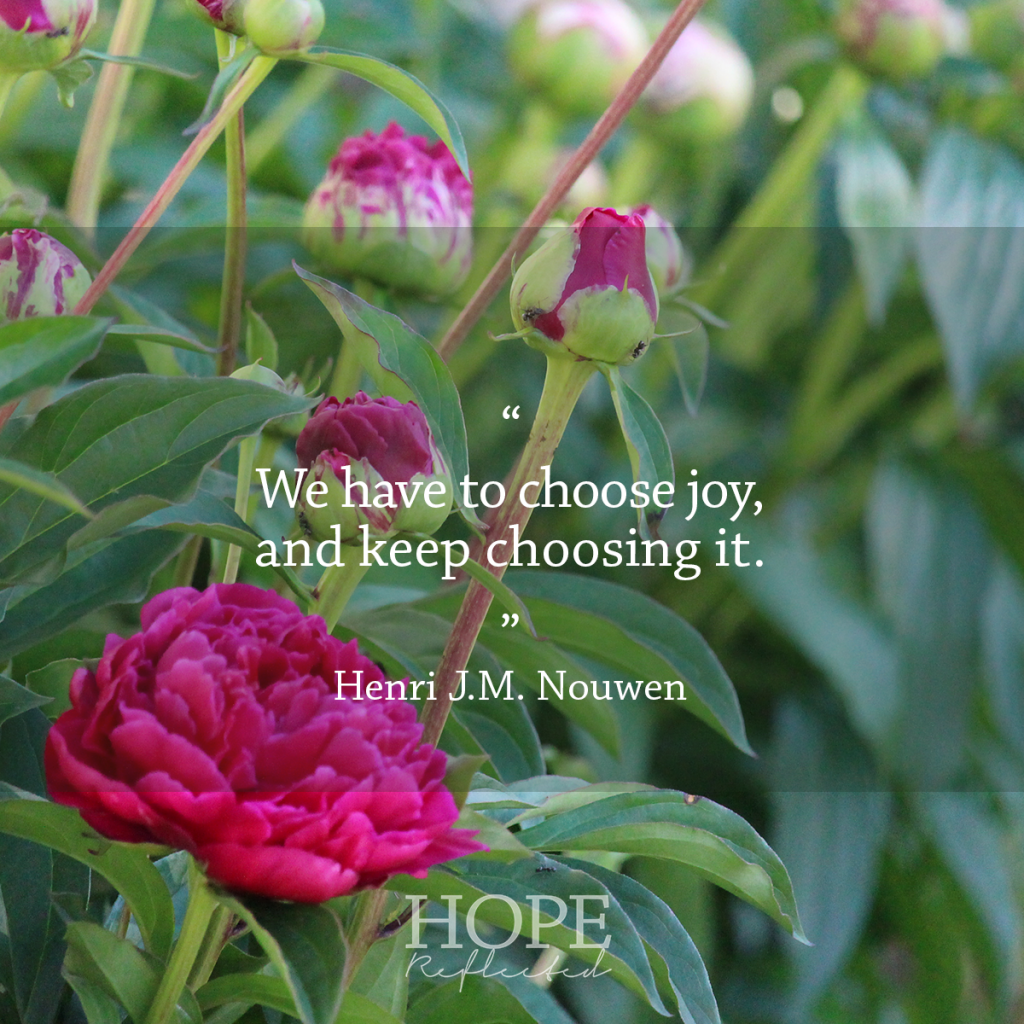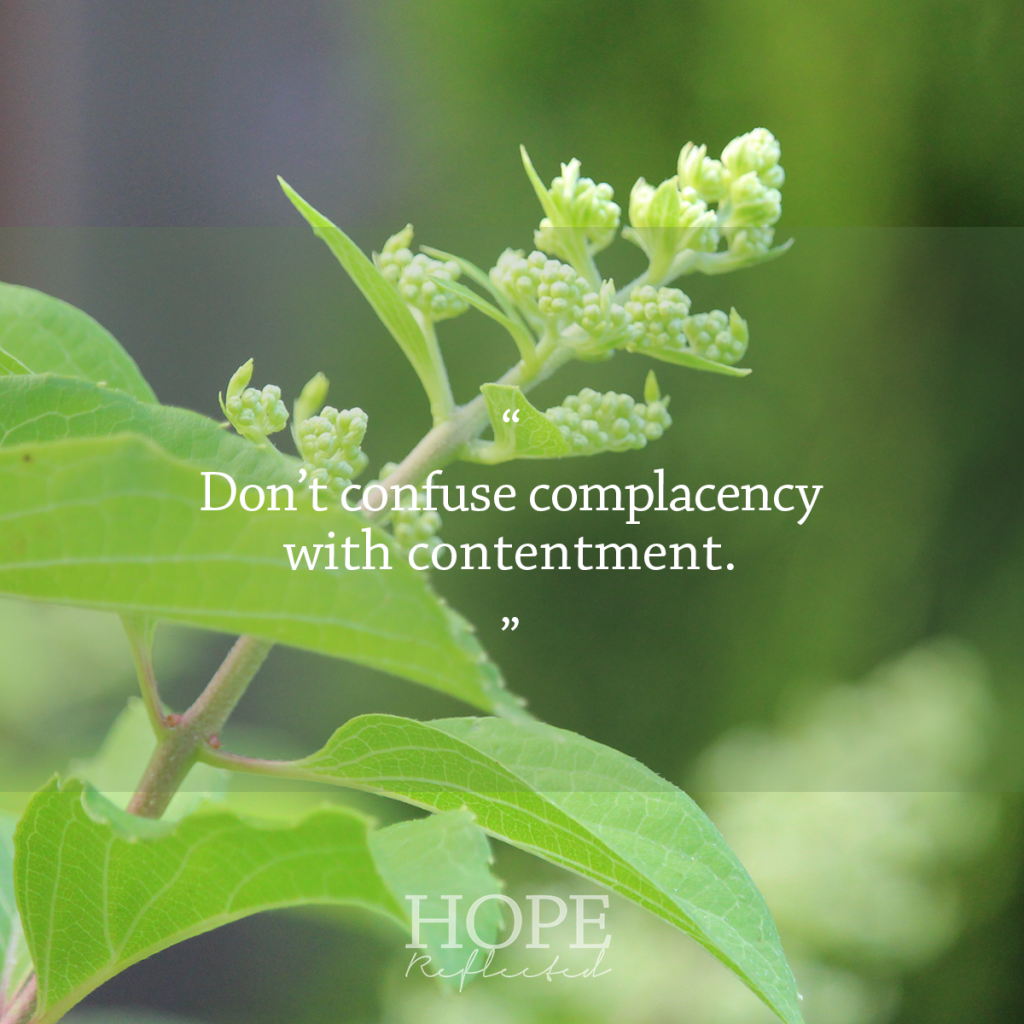The Thankful Heart
Written by H, Posted in Christian Living, Encouragement
Thursday
November 2018
Written by H, Posted in Christian Living, Encouragement
Saturday
October 2018
Written by H, Posted in Christian Living, Published Work

With summer behind us, this doorway to fall during mid-September through October often finds people getting excited about pumpkin spice, Halloween, and wearing heavy knits. As we head in to this Thanksgiving season, I am reminded of what the Bible tells us about thanksgiving, and these are truths that are applicable the whole year through.
So many times throughout the Bible we read about giving thanks, thanksgiving, and being thankful. Colossians 3, talking about Christian characteristics, says that we should, “let the peace of God rule in your hearts, to the which also ye are called in one body; and be ye thankful.” As children of God, we are called, among other things, to be merciful, kind, humble, meek, patient, forgiving, loving, peaceful, and thankful.
While all of those characteristics stand out to me as areas in which I fail daily, I can’t help but be convicted by the last part of verse 15: “Be ye thankful.” This is instruction that we are to follow in our daily lives, not just one day out of the year, and yet, how often – even in the span of a single day – do I find myself complaining, lamenting, and resenting! As humans, we’ve made it a habit to complain and as a result we’ve become immune to God’s blessings.
The Bible also provides specific guidance around the areas for which we are to give thanks. When you consider Thanksgiving with your family, perhaps you’re accustomed to going around the table and sharing something, or someone, for which you’re thankful. These thoughts are traditionally positive, however note what we read throughout the Scripture about the nature of thanksgiving. “In every thing give thanks,” (1 Thess. 5:18). “Be careful for nothing; but in every thing by prayer and supplication with thanksgiving let your requests be made known unto God,” (Phil. 4:6). “Giving thanks always for all things unto God.” (Eph. 5:20). “Continue in prayer, and watch in the same with thanksgiving.” (Col. 4:2). Thanksgiving is not to be reserved just for the good stuff. No, on the contrary, we’re called to be thankful for every thing – that includes the good and the bad, the happy and the sad. As C.S. Lewis said, “We ought to give thanks for all fortune: if it is good, because it is good, if bad, because it works in us patience, humility, and the contempt of this world and the hope of our eternal country.”
Thanksgiving, it should also be remembered, is not just a singular action. Thanksgiving has two components, that of being thankful, and that of giving. As much as thanksgiving is about what we are thankful for, thanksgiving is also about what we give. Consider who is around you, what have you been blessed with, and where can you serve others.
Someone once said that it is not happy people who are thankful, it is thankful people who are happy. As we enter this new season, may we remember that thanksgiving is an acknowledgement and reflection of God’s blessings to us.
Friday
September 2018
Written by H, Posted in Christian Living, Published Work

If you’re familiar with C.S. Lewis’s book, The Lion, The Witch, and the Wardrobe, then you’re likely familiar with the characters of Aslan and Lucy. In Lewis’s book Voyage of the Dawn Treader, Aslan whispers to Lucy, “Courage, dear heart,” and it is shortly after this that the ship Lucy is sailing on travels from darkness into light. “And all at once everybody realized that there was nothing to be afraid of and never had been,” writes Lewis.
In a recent column, I wrote about the importance of choosing joy, and today I’d like to suggest that courage is also a choice. Courage is a decision that we make in the face of fear, opposition, and uncertainty, and it can change everything.
“Be strong, and of good courage,” are words that, by my count, appear at least 10 times throughout Scripture; these words are written four times in the first chapter of Joshua alone! Time and time again throughout the Bible, we are encouraged and commanded as Christians to be of good courage and to be courageous. To be of good courage and lead by example. To be of good courage and not be afraid or quiet when it seems like the majority of people disagree with you and want to silence you. To be of good courage and to stand firm and to stand up for what is right.
Does that mean that you’re never afraid? No, on the contrary! As Mark Twain said, “Courage is resistance to fear, mastery of fear – not the absence of fear.” Does that mean that it’s easy to stand up for what’s right and defend your faith? No, on the contrary! Courage is a choice that as Christians we’re called to make, regardless of the circumstances. Joshua was called to be courageous when it came time to lead the Israelites into a new and unknown land. David reminded himself to be courageous during seasons of persecution. Paul demonstrated courage when he traveled across the world and taught about Jesus and came up against many people who disagreed with him.
Courage. We can take courage in many different areas:
The greatest place of all to take courage? When you know the Lord as your personal Saviour, you’ve got something that no man, no weapon, no illness, no circumstance can ever take away. The security that comes with God’s gift of eternal salvation should be all the “encouragement” we need to take courage. “Courage,” said C.S. Lewis, “is not simply one of the virtues, but the form of every virtue at the testing point.” It’s up to us to make the decision to live a life filled with it.
Friday
September 2018
Written by H, Posted in Christian Living, Published Work

While many people believe that happiness and joy are one and the same, I’ve often said that happiness is a feeling and joy is a choice. One of my favourite quotes is about joy: “We have to choose joy, and keep choosing it.” (Henri J.M. Nouwen)
The notion to “choose joy” suggests that joy isn’t so much a feeling as it is a choice or a habit that we purposefully develop. While you may not be happy, you can still choose joy. While happiness resides temporarily in your heart and relies solely on your circumstances, joy indwells your spirit and can be yours at any time so long as you make the choice.
C.S. Lewis once said, “no soul that seriously and constantly desires joy will ever miss it. Those who seek, find. To those who knock, it is opened.” Lewis also said, “I didn’t go to religion to make me ‘happy’.” Just because you’re a Christian doesn’t mean that you’re guaranteed the path to Easy street. Just because you’re a Christian doesn’t mean that you’re exempt from challenges. Just because you’re a Christian doesn’t mean that you’ll always be “happy”, but it does mean that you’ve got a relationship with the Creator, and you’ve got direct access to the One Whose arm can move the world.
Mentioned more than 165 times throughout the Bible, joy is a fascinating thing. Joy, when we choose it, can arm us and equip us with many blessings. Joy can be found in many places.
Nehemiah 8:10 provides the reassurance that, “the joy of the LORD is your strength.” If you’re truly seeking after joy, God will give you strength. And it is only in God that your joy will be full (John 15:11).
Thursday
July 2018
Written by H, Posted in Christian Living, Published Work

C.S. Lewis once said that, “everyone thinks forgiveness is a lovely idea until he has something to forgive.” It’s true, isn’t it? So often we’re quick to give out the advice to forgive, but when it comes to leading by example, forgiveness can be difficult. Not that drinking the poison of bitterness and resentment is any less difficult, but sometimes avoidance – of the truth, of hurt, of pain – disguises itself as the easy road.
There is so much that we can learn when we look to the Lord. His forgiveness is a gift.
God’s forgiveness is not an excuse to do whatever you want. “What shall we say then? Shall we continue in sin, that grace may abound?” (Romans 6:1) This may seem like common sense, but it’s surprising how many people think that God’s forgiveness is an excuse to carry on with sinful behavior. I’d argue the contrary, that God’s forgiveness and grace should be reason enough to do our best to live a faithful and holy life! He sent His Son to the cross for us, to die – that’s the ultimate sacrifice. To continue on in sin, and to not strive to be our best for God is like the ultimate insult and ungratefulness. Does that mean that we’re perfect? No, but it does mean that we even when we trip, we pick up our cross and keep going.
God’s forgiveness is all-encompassing. “As far as the east is from the west, so far hath He removed our transgressions from us.” (Psalm 103:12) How far is the east from the west, exactly? Well, the two don’t meet. You can travel the world, and east and west don’t intersect. God’s forgiveness separates us from our sins. His forgiveness wipes our slate clean. “Though your sins be as scarlet, they shall be as white as snow; though they be red like crimson, they shall be as wool.” (Isaiah 1:18) God’s forgiveness isn’t just for some of your sins; God’s forgiveness is all-encompassing and includes even the secrets of which you’re most ashamed.
God’s forgiveness is an example. “Forbearing one another, and forgiving one another, if any man have a quarrel against any: even as Christ forgave you, so also do ye.” (Colossians 3:13) God’s forgiveness of our sins is an example of how we should forgive others. C.S. Lewis once said that, “to be a Christian means to forgive the inexcusable because God has forgiven the inexcusable in you.” Is it easy? No! Sometimes forgiveness can seem like the hardest thing. We want to focus more on our feelings than we do on Christ, and that’s part of being human. We should challenge ourselves however, to look to Christ’s forgiveness and follow His example, not just with others, but with ourselves as well. “I think that if God forgives us, we must forgive ourselves. Otherwise, it is almost like setting up ourselves as a higher tribunal than Him.” (C.S. Lewis)
God’s forgiveness is a gift. God’s forgiveness, in addition to being all-encompassing and an example for us to follow, is a great reminder to us of His everlasting love for us. He loves us enough to forgive us. “The great thing to remember is that, though our feelings come and go, His love for us does not. It is not wearied by our sins, or our indifference; and, therefore, it is quite relentless in its determination that we shall be cured of those sins, at whatever cost to us, at whatever cost to Him.” (C.S. Lewis)
Friday
February 2018
Written by H, Posted in Christian Living, Published Work

Over the past couple of months, I’ve been journaling about the references David made in the book of Psalms about seeking the Lord. David was a model of what it is to truly spend time with God. While he was incredibly flawed – hey, what it is to be human, right? – David was also incredibly close to our Lord. While we can learn from many positive examples of how David sought the Lord, here are three that really stand out to me:
Seek God early. “O God, You are my God; early will I seek you.” (Psalm 63:1) Seeking God early: If you’re not a morning person, I can understand why you’d struggle with this. Reading through the Psalms however, there are so many encouraging verses about the value of seeking God early in the day. It’s such a viable point that David references it at least nine times that I can see in just one book of the Bible. “My voice you shall hear in the morning, O LORD; in the morning I will direct it to You, and I will look up.” (Psalm 5:3) Beyond just early in the day, it’s also important that we seek God early: Before making important decisions, before addressing problems, before we interact with others, before we leave the house. Early doesn’t just reference the morning; it references seeking God diligently and earnestly before making decisions (1 Kings 22:5). I’m no scholar, but the same Hebrew word for “early” used in Psalm 63:1 is also used in Psalm 78:34, “they sought Him, and returned and searched diligently for God.”
Seek God often. “Seek the LORD and His strength; seek His face evermore!” (Psalm 105:4) Some versions of the Bible replace the word “evermore” with the word “continually” or “always”. We are to seek the Lord continually, to rejoice always, to pray without ceasing (1 Thessalonians 5:16-17). Maybe for you seeking the Lord often means praying during your daily commute. Perhaps it’s communing with him while you’re out for a walk, or sitting at your desk, or while you’re making dinner. Wherever you are, seek Him! God is always with us, and we’re told in Proverbs 8:17 that those who seek the Lord diligently (read: Often) will find Him. You may think you don’t have time for God, but the key to seeking God often isn’t us making time; it’s making God part of everything that we do. After all, in Him we live and breathe and have our being. “In God we boast all day long, and praise your name forever. Selah.” (Psalm 44:8)
Seek God every day. “One thing I have desired of the LORD, that will I seek: That I may dwell in the house of the LORD all the days of my life.” (Psalm 27:4) Each day brings with it new challenges and new opportunities. And no matter what the day brings, we are to seek God every day. What a challenge! We aren’t just to seek Him when we feel good, or when the circumstances suit us; we are to seek Him every day. “See, I have set before you today life and good, death and evil, in that I command you today to love the LORD your God, to walk in His ways, and to keep His commandments, His statutes, and His judgments, that you may live and multiply; and the LORD your God will bless you in the land which you go to possess.” (Deuteronomy 30:15-16) Whether the day is terrific or troubling, we should seek God every day (Psalm 50:15).
David was in no way a perfect man, and I think that’s part of what makes his testimony so relatable – he was human, just as we are, and yet we witness him demonstrate so many times through God’s Word ways that we should seek God. When we earnestly seek after God, He seeks after us. “And you will seek Me and find Me, when you search for Me with all your heart.” (Jeremiah 29:13)
Wednesday
February 2018
Written by H, Posted in Christian Living, Wednesday Wisdom

Complacency is rooted in pride, self, and idleness, while contentment is rooted in gratitude, thanksgiving, and active faith.
Complacency says, “Wow, look at everything I’ve accomplished,” while contentment says, “Thank you for all that you’ve blessed me with.”
Complacency fools you with conceit, while contentment fills you with humility.
Complacency tells you to stay where you are, while contentment encourages you to grow in your faith.
The book of Proverbs explains complacency vs. contentment in several verses:
Complacent people tend to be more slothful and sluggish; they’re of the mindset that they don’t have to work hard or strive to be better because they think they’re already the best, that they’ve already “arrived”. Content people are thankful for where they are, but they understand and appreciate the value in working diligently and in continuing to grow.
It’s easy to fall into the rut of complacency, but learning contentment is the only way to grow and move forward.
Don’t confuse complacency with contentment.
Tuesday
February 2018
Written by H, Posted in Christian Living, Encouragement
“For He satisfies the longing soul, and fills the hungry soul with goodness.” (Psalm 107:9)
Contentment. You’ve likely heard the saying, “comparison is the thief of joy“. Similarly, comparison is also the thief of contentment. It’s not until you learn to love what you have that you’ll learn to be content.
David wrote Psalm 107 as a prayer of thanksgiving to God. Thanksgiving is a huge key to contentment. I love Psalm 107:9, which reads: “For He satisfies the longing soul, and fills the hungry soul with goodness.” You know that feeling of satisfaction when you’re really thirsty, and you take a drink from a nice, tall glass of water? Or what about when you’ve working all day with little or no time to break for food, and you sit down to enjoy one of your favourite meals?
Having a relationship with God has a similar effect. Only God can satisfy the deepest longings of your soul, and only He can fill your hungry soul with goodness.
If you’re looking for true contentment, consider these suggestions:
The next time you catch yourself longing, look to God. Only He can satisfy the longing soul and fill the hungry soul with goodness. You’ll only ever be truly content when you know the Lord as your Saviour.
“For He satisfies the longing soul, and fills the hungry soul with goodness.” (Psalm 107:9)
Tuesday
January 2018
Written by H, Posted in Christian Living, Published Work
Many Hope Reflected readers grew in a home where Sundays were made for going to church. I can remember as a child one Sunday in particular. I was about four years old, was wearing my favourite purple dress, and I was thirsty (think crawling through the Sahara desert and longing for a drop of water thirsty). I was trying to figure out a way to strategically squeeze out from between my parents and get out to the water fountain for a drink. As I was devising my plan, the pastor asked passionately, “Is anybody thirsty?!” and I immediately thought he was directing his question at me. “Yes!” I called out, “I am!” Of course, my outburst got a lot of laughs from the congregation, and eventually I really did get a drink.
More than an obligation or a ritual, there are so many reasons why going to church is important. A key part of our Faith, going to church can help each of us grow in several ways.
Going to church allows us a time for personal inventory and reflection. “Let us search out and examine our ways, and turn back to the LORD.” (Lamentations 3:40) One thing I love about being part of the Bible Chapel, is that during communion, we’re afforded the opportunity to reflect on what our Lord has done for us. 1 Corinthians 11:28 says, “But let a man examine himself, and so let him eat of that bread, and drink of that cup.” Just as much as church is a time for fellowship with other Christian believers, church is also a time for personal inventory and reflection. Through communion, Sunday sermons, Bible studies, and prayer, church provides an excellent opportunity to look at our own lives and look to the Lord. “I considered my ways and turned my feet to your testimonies.” (Psalm 119:59)
Going to church cultivates our character. “Being filled with the fruits of righteousness, which are by Jesus Christ, unto the glory and praise of God.” (Philippians 1:11) Going to church helps to cultivate character. When you’re being taught truth from a Biblical perspective, and as you learn to discern the difference between right and wrong, your character will grow. Being part of a solid church will help to develop and deepen your relationship with God, and will strengthen your character.
Going to church means being part of a family. “Now, therefore, you are no longer strangers and foreigners, but fellow citizens with the saints and members of the household of God.” (Ephesians 2:19) Even if your home life isn’t great, you can still be at home in the house of Christ. When you belong to a solid church, you’re part of an even greater family – God’s family. Jesus points out in Matthew 12:48, “Who is my mother, and who are my brethren?” He wasn’t questioning who his mother and his brothers actually were, He was merely pointing out the importance of our relations in a spiritual sense. Matthew Henry said in his commentary, “let us look upon every Christian, in whatever condition of life, as the brother, sister, or mother of the Lord of glory; let us love, respect, and be kind to them, for His sake, and after His example.”
Going to church is about so much more than going through the motions. When you’re part of a solid church, you will be challenged, cherished, comforted, and more. As the evangelist Dwight L. Moody said, “Church attendance is as vital to a disciple as a transfusion of rich, healthy blood to a sick man.”
Wednesday
January 2018
Written by H, Posted in Uncategorized

You’ve likely heard the saying, “What goes in must come out” or “garbage in, garbage out”. What’s in your heart will show in your life. Do you have low self confidence? You’ll likely seek out others who are the same and who try to put you down to build themselves up. Is there bitterness in your heart? You and those around you can probably taste it in your words. Is there love in your heart? You’ll give that to others in the way that you treat them.
What’s in your heart will show in your life. That’s why it’s important to fill your heart with God’s truth, wisdom, love, and peace!
The book of Psalms is filled with wisdom, and Psalm 119 — in addition to being the longest chapter in the Bible — is filled with the insight of a person who despite living through a world of difficulties, finds joy and “delight” in following the Lord.
Psalm 119:11 says, “Your Word have I hidden in my heart, that I might not sin against You.”
A practical way to follow the Lord is to commit His Word (the Bible) to memory. I’m not suggesting you memorize the entire Bible (though some have!), I’m suggesting you start simple and memorize some of the verses that have impacted your life.
What Bible verses encourage you? What Bible verses comfort you? What Bible verses remind you what is right? Start with the Bible verses that speak the most to you, and commit them to memory, one at a time.
Maybe you’ll memorize one verse a week. Maybe you’ll memorize one verse a month. A great way to start is to write a couple of verses down on a sticky note, or an index card. Post it on your computer screen, or carry it in your purse. Make it a habit to hide God’s Word in your heart. After all, what’s in your heart will show in your life.
What is a favourite Bible verse that you’ve memorized?